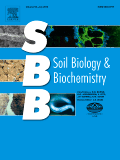
SOIL BIOLOGY & BIOCHEMISTRY
Scope & Guideline
Exploring Microbial Mysteries in Soil Ecosystems
Introduction
Aims and Scopes
- Soil Microbial Ecology:
Research on the diversity, composition, and functional roles of microbial communities in various soil environments, exploring how these communities interact with plants and other soil organisms. - Soil Biochemical Processes:
Studies focusing on the biochemical pathways and processes that govern nutrient cycling, organic matter decomposition, and soil respiration, emphasizing the role of enzymes and microbial metabolism. - Plant-Soil Interactions:
Investigations into how plant roots and associated microbial communities influence soil health, nutrient availability, and carbon dynamics, including studies on root exudates and mycorrhizal associations. - Impact of Environmental Changes:
Research examining the effects of climate change, land use, and anthropogenic activities on soil biota and biogeochemical cycles, including studies on nutrient leaching, greenhouse gas emissions, and soil fertility. - Soil Remediation and Health:
Papers discussing strategies for improving soil health and fertility, including the use of organic amendments, biochar, and sustainable agricultural practices to enhance soil ecosystem services.
Trending and Emerging
- Microbial Community Dynamics:
There is an increasing focus on understanding the dynamics of microbial communities in response to environmental changes, land use practices, and interactions with plants, highlighting the importance of microbial diversity for ecosystem resilience. - Soil Carbon Cycling:
Research on soil carbon dynamics, including the mechanisms of carbon stabilization and the role of microbial necromass in organic matter formation, is gaining traction as concerns about climate change and carbon sequestration become more urgent. - Soil Biogeochemistry in Global Change Contexts:
Emerging studies are addressing how global change factors, such as climate warming and nitrogen deposition, influence soil biogeochemical processes, particularly in relation to greenhouse gas emissions and nutrient cycling. - Innovative Soil Management Practices:
There is a trend towards exploring innovative soil management practices, including the application of biochar, cover cropping, and organic amendments, aimed at enhancing soil health and mitigating negative environmental impacts. - Integration of Technology in Soil Research:
The use of advanced technologies, such as molecular techniques and soil sensors, to study soil microbial communities and biogeochemical processes is becoming more prevalent, allowing for more precise and real-time assessments of soil health.
Declining or Waning
- Traditional Soil Chemistry:
Research focused primarily on classical soil chemistry aspects, such as nutrient content and pH, has decreased as more integrative approaches that consider biological interactions and ecosystem functions gain prominence. - Single-Factor Analyses:
Studies that examine isolated factors (e.g., only nitrogen inputs or only temperature effects) without considering the broader ecological context are appearing less frequently, as there is a shift towards more holistic, systems-based approaches. - Static Soil Properties:
Research that emphasizes static measurements of soil properties (such as bulk density or texture) without relating them to dynamic biological processes or ecosystem services is declining in favor of studies that connect soil properties to microbial activity and ecosystem functioning.
Similar Journals
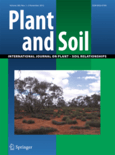
PLANT AND SOIL
Nurturing scientific dialogue for a sustainable future in agriculture.PLANT AND SOIL is a prestigious academic journal that has been at the forefront of plant and soil research since its inception in 1948. Published by SPRINGER in the Netherlands, this journal has carved a niche as a leading source of high-quality, peer-reviewed articles, which are essential for researchers, professionals, and students in the fields of Plant Science and Soil Science. With an impressive impact factor placing it in the Q1 category of both disciplines, it ranks 50th in the field of Plant Science and 24th in Soil Science, highlighting its influence in the scientific community. Although not available as open access, the journal provides a wealth of knowledge and insights into the interactions between plants and soils, exploring critical topics such as soil health, crop productivity, and sustainable agriculture practices. Researchers who wish to contribute to this vital area of study through their empirical findings will find PLANT AND SOIL to be an invaluable platform for disseminating their work and connecting with a network of leading scholars committed to advancing our understanding of these essential ecosystems.
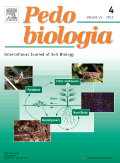
PEDOBIOLOGIA
Innovating Research for a Sustainable Soil FuturePEDOBIOLOGIA, published by Elsevier GmbH, is a prestigious journal dedicated to advancing the fields of Ecology and Soil Science. Renowned for its authoritative contributions to understanding soil biology and its ecological implications, PEDOBIOLOGIA has maintained a strong impact within the academic community, evidenced by its Q2 ranking in both Ecology, Evolution, Behavior and Systematics and Soil Science categories in 2023. The journal has a broad scope that encompasses fundamental and applied research on the interactions between soil organisms and their environment. Since its inception in 1977, it has provided vital insights into the biological functions of soil, serving as a crucial resource for researchers, professionals, and students alike. Although not an Open Access journal, its publications are accessible through various academic libraries, ensuring that cutting-edge research continues to be available to a global audience. Located in the vibrant academic hub of Munich, Germany, PEDOBIOLOGIA not only emphasizes the importance of soil ecosystems but also fosters interdisciplinary dialogue, making it an essential platform for innovative studies in the field.
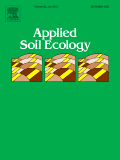
APPLIED SOIL ECOLOGY
Uncovering the Secrets Beneath Our FeetApplied Soil Ecology, published by Elsevier, is a premier journal dedicated to advancing the field of soil ecology through rigorous research and innovative methodologies. With an impressive impact factor and a consistent placement in the Q1 quartile across various categories including Agricultural and Biological Sciences, Ecology, and Soil Science, this journal underscores its significance in the scientific community. The journal's scope encompasses critical areas such as soil biology, microbial ecology, and the role of soils in ecosystem services, aiming to foster collaboration and knowledge exchange among researchers, professionals, and students. The convergence of research efforts from 1994 to 2024 highlights its commitment to maintaining current and relevant discourse within the field. While open access options are not available, the quality and depth of the articles published ensure that the latest findings and discussions are accessible through institutional subscriptions. With a strong focus on empirical studies and applied research, Applied Soil Ecology is an essential resource for anyone interested in the complexities of soil ecosystems and their impact on the environment.

Spanish Journal of Soil Science
Cultivating Knowledge for Global Soil SolutionsThe Spanish Journal of Soil Science is a prestigious open-access journal published by FRONTIERS MEDIA SA since 2011. Based in Switzerland, this journal serves as a vital platform for disseminating innovative research and applications within the field of soil science. With its commitment to accessibility, the journal enables researchers, professionals, and students from around the globe to contribute to and benefit from its wealth of knowledge. As of 2023, it holds a respectable Q3 category ranking in soil science and is positioned at #88 out of 159 in the Scopus rankings for Agricultural and Biological Sciences. The journal aspires to foster collaboration and communication among soil scientists, encouraging the exploration of contemporary soil issues, sustainable practices, and advancements in technology. Its open-access model ensures that the latest findings are freely available, promoting a broader impact in environmental and ecological studies.

REVISTA BRASILEIRA DE CIENCIA DO SOLO
Fostering Global Dialogue on Soil StewardshipREVISTA BRASILEIRA DE CIENCIA DO SOLO, published by the SOC BRASILEIRA DE CIENCIA DO SOLO, serves as a vital open-access platform for disseminating impactful research in the fields of Agronomy and Soil Science. With an ISSN of 0100-0683 and an E-ISSN of 1806-9657, this journal has been fostering academic dialogue since 2003 and has gained recognition as a Q2 journal in both Agronomy and Soil Science as of 2023. Based in Brazil and actively supporting scientists and practitioners globally, it is uniquely positioned to address the challenges and innovations in soil management and cultivation practices. The journal's Scopus rankings reflect its commitment to quality, standing at #164/406 in Agronomy and Crop Science and #74/159 in Soil Science, placing it in the top quartile of its category. Researchers, professionals, and students are encouraged to contribute their findings and insights, making it a significant resource for anyone interested in advancing the science of soil and crop stewardship.
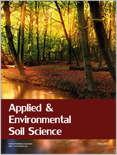
Applied and Environmental Soil Science
Fostering interdisciplinary dialogue for a healthier planet.Applied and Environmental Soil Science, an esteemed journal published by HINDAWI LTD, focuses on disseminating high-quality research in the fields of soil science and environmental applications. With an ISSN of 1687-7667 and an E-ISSN of 1687-7675, this open-access journal has been a vital resource for the academic community since its inception in 2009. As of 2023, it holds a commendable position in the Q2 category for both Earth-Surface Processes and Soil Science, highlighting its impact in these crucial disciplines. The journal’s rankings further affirm its significance within the field, being placed 61st in Earth and Planetary Sciences and 58th in Agricultural and Biological Sciences. Researchers and practitioners alike benefit from the collaborative platform it offers for sharing innovative studies essential for sustainable soil management and environmental integrity. With a focus on advancing knowledge and fostering interdisciplinary dialogue, Applied and Environmental Soil Science stands as a crucial pillar for scholars and professionals dedicated to addressing the pressing challenges of soil and environmental health.
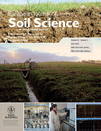
EUROPEAN JOURNAL OF SOIL SCIENCE
Transforming Soil Research into Practical SolutionsEUROPEAN JOURNAL OF SOIL SCIENCE, published by Wiley, stands as a leading platform in the field of soil science, recognized for its contributions to the understanding of soil ecology, management, and sustainability. With an impressive impact factor and a distinguished Q1 ranking in Soil Science, this journal has recently ranked 23rd out of 159 in its category on Scopus, placing it in the 85th percentile among its peers. Covering a wide array of topics as it converges into the future, from 1994 to 2024, the journal aims to disseminate groundbreaking research and innovative methodologies that address the pressing challenges of soil degradation and environmental sustainability in Europe and beyond. Although it is not an open access journal, the EUROPEAN JOURNAL OF SOIL SCIENCE remains a vital resource for researchers, professionals, and students seeking to deepen their understanding and explore the latest advancements in soil science.
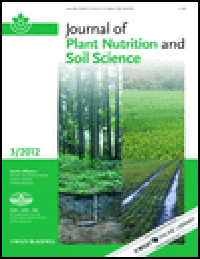
JOURNAL OF PLANT NUTRITION AND SOIL SCIENCE
Exploring the vital connections between plants and soil.JOURNAL OF PLANT NUTRITION AND SOIL SCIENCE, published by WILEY-V C H VERLAG GMBH, stands as a premier platform in the field of agricultural and biological sciences, focusing specifically on the intricacies of plant nutrition and soil science. With an impressive impact factor and a respected Q1 category ranking in Plant Science and Q2 category ranking in Soil Science for 2023, this journal is essential for researchers and professionals seeking to advance their understanding and foster innovative practices in sustainable agriculture. The journal’s open access options ensure a broad dissemination of knowledge, appealing to a global audience and facilitating collaborative research efforts. Embracing a broad scope that extends from foundational science to cutting-edge research developments in soil health and nutrient management, the journal serves as a critical resource for both emerging scholars and established experts, reinforcing its pivotal role in addressing the challenges of food security and environmental sustainability. With years of convergence from 1996 to 2024, it remains committed to excellence in scholarly communication, providing a vital forum for the sharing of valuable insights and advancements in the field.

Soil Systems
Pioneering Insights into Soil Health and Ecosystem DynamicsSoil Systems, published by MDPI, is a premier open access journal dedicated to advancing the understanding of soil science and earth-surface processes. Launched in 2017, this journal has quickly established itself with a strong presence in the academic community, holding a prestigious Q1 ranking in both Earth-Surface Processes and Soil Science as of 2023. With an impressive Scopus rank in the top 20% of its categories, Soil Systems is an essential platform for disseminating groundbreaking research addressing the challenges and complexities of soil management, its ecological significance, and its role in sustainable development. The journal operates under an open access model since 2018, ensuring maximum visibility and accessibility for researchers, professionals, and students alike. Based in Switzerland, at ST ALBAN-ANLAGE 66, CH-4052 BASEL, Soil Systems encourages contributions that promote interdisciplinary collaboration, innovative methodologies, and the application of findings to real-world issues related to soil health and environmental sustainability.
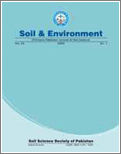
Soil & Environment
Empowering Knowledge for Sustainable Soil ManagementSoil & Environment is a distinguished open access journal published by the University of Agriculture, Institute of Soil & Environmental Sciences, located in Faisalabad, Pakistan. Established in 2006, this journal has become a vital platform for disseminating pioneering research in the fields of Environmental Science and Soil Science. With an ISSN of 2074-9546, it provides a wealth of knowledge through accessible academic articles, particularly focusing on sustainable practices and innovations that impact soil and environmental health. Although currently categorized in Q4 within both Environmental Science (miscellaneous) and Soil Science, the journal is dedicated to enhancing its influence and visibility as it progresses towards convergence years that span from 2010 to 2024. Researchers, professionals, and students will find Soil & Environment an essential resource for staying informed about the latest developments and methodologies in soil conservation and environmental sustainability. By offering publicly accessible content, the journal aims to foster greater collaboration and knowledge-sharing within the global scientific community.